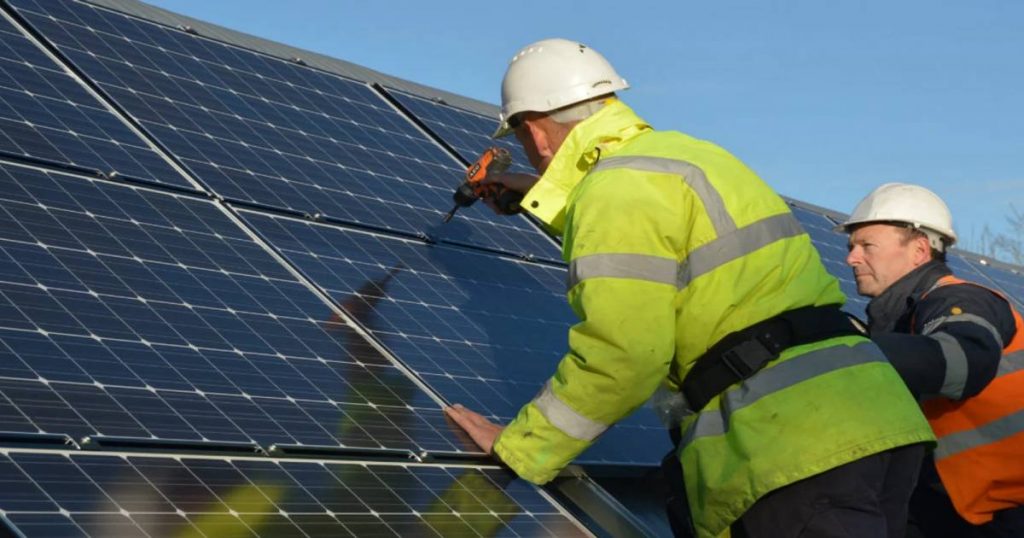
Image: National Trust
National Trust announced yesterday it will divest from all fossil fuel companies within the next three years, as it continues its own journey towards 50% renewables by 2020.
Founded in 1895, National Trust cares for more than 1,250 kilometres of coastline and over 248,000 hectares of land; plus hundreds of historic houses, castles, ancient monuments, gardens, parks and nature reserves in England, Wales and Northern Ireland. It’s funded by members, donors, volunteers, grants and engages in some commercial activities.
It’s not exactly scratching for cash – the organisation has stock market investments valued at just over £1bn (~AUD $1.79 billion).
National Trust had previously required no direct investments be made in companies deriving more than 10 per cent of their revenue from the extraction of thermal coal or tar sands oil. The Trust’s fossil fuel investments make up around 4 per cent of its current portfolio (so around £40 million), but the organisation has decided that’s still too much.
“Many organisations have been working hard to persuade fossil fuel companies to invest in green alternatives. These companies have made insufficient progress and now we have decided to divest from fossil fuel companies,” said National Trust Chief Financial Officer Peter Vermeulen. “We have set a three-year timescale but expect the majority of divestments will be accomplished in the first 12 months.”
Other new investment measures included establishing a long-term goal to further reduce of the carbon footprint of its portfolio, encouraging companies it invests in to lift their environmental performance and to seek opportunities to support green business.
National Trust doesn’t expect the divestment push to have a negative impact on financial returns and believes its members will be pleased with the decision. It’s a huge organisation with around 5.2 million members and 60,000 volunteers.
National Trust And Renewable Energy
In terms of the Trust’s efforts to reduce its own energy related emissions, back in 2015 the organisation announced a four-year, £30 million investment in renewable energy projects. It now has hundreds of renewable energy systems in operation for the supply of heating and electricity generation.
Technologies used include heat pumps, hydro, solar energy and wood fuel boilers – but the latter being green and renewable is the subject of some debate. Solar power systems are installed on the rooftops or grounds at a number of premises, including castles.
National Trust has set a target to generate 50 per cent of all the energy it consumes from renewable sources by 2020. This isn’t just about reducing emissions but also saving money – the organisation was spending nearly £6 million a year (around AUD $10.7 million) on heating and powering its various premises.
Fossil Fuel Divestment A Trend, Not A Fad
The fossil fuel divestment movement is continuing to gain momentum – not just overseas, but also in Australia. In a recent example closer to home, New South Wales’ Inner West Council announced last month it is the first council in the state to be totally divested from fossil fuels. The council has also set targets of carbon neutrality by 2023 and attaining 100% renewables to power its operations by 2025; with solar energy to play an important role.

 RSS - Posts
RSS - Posts



Speak Your Mind